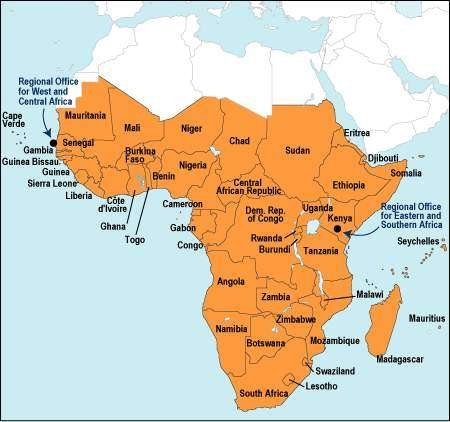Consisting of 54 countries, the African continent is a very diverse and interesting region to cover. To predict the future trends and tendencies of African economies, we will need to analyze certain current developments and global trends. In this article, we will provide our educated guess for 2023 African countries’ economies.
African region’s current status
Africa consists of developing countries with diverse economies, cultures, and social structures. The region’s main characteristics are abundant natural resources and significant development challenges. Because of these, many Africans try to flee their countries and learn for free online. Trading financial markets seems attractive for Africans to make a living without leaving their country. There are important trading lessons here every African citizen needs to check before deciding to leave this beautiful region. Civil wars plague the region and slow down the development tremendously, not to mention frequent corruption and dictatorships.
If we can see what Africans are importing and exporting and then analyze global economic and political trends, we will be able to predict future developments for African economies in 2023.
Main export products:
- Crude oil and petroleum products.
- Minerals and ores. Gold, diamonds, copper, and iron ore are the main export commodities from the African region.
- Agricultural products. Cocoa, coffee, tea, cotton, and fruits and vegetables are exported daily from Africa.
- Textiles and clothing.
- Raw materials. Many African countries are exporting wood, rubber, and leather.
Main import products:
- Machinery and equipment
- Vehicles: Cars, trucks, and other vehicles are also major import products for many African countries.
- Consumer goods
- Food and beverages
- Petroleum products: In addition to exporting crude oil, many African countries also import petroleum products for domestic consumption.
Global economic and political events that impact Africa
After defining the main export and import products, let’s discuss what are the most important factors that can affect the whole region’s economy the most.
- Commodity Prices: In order to ensure continuous and stable revenues for many African countries that export commodities, prices will have a major impact. Since sanctions against Russia slowed down their exports considerably, Africans should have better days ahead. Commodities prices will increase or stay the same, at least guaranteeing African economies with positive cash flows. In 2020 Nigeria exported $30 billion worth of oil, about 4.68% of the global value.
- Global Demand: The global demand for African exports, particularly minerals, and agricultural products, can have a significant impact on African economies. Here, the demand will only grow as major food and energy suppliers are at war, started by an unprovoked Russian invasion in Ukraine.
- Global Economic Conditions. The European energy crisis and continuous war will only make oil prices rise, and the African region is a minor exporter of crude oil, which should be positive for the region. Since Nigeria is the 7th in the world by crude oil exports, the revenue from this sector is expected to only increase in 2023 as the war is still going on and doesn’t show signs of stopping.
- Geopolitical Instability. The current global political situation is extremely tense between the west and Russia, constant sanctions are hitting the Russian imperial machine. These global tensions are always reflected in economies negatively.
- Exchange Rates and currency risks. Inflation in the USA forced the Fed to increase interest rates. Since USD is a world reserve currency, this will have major negative effects on developing countries and especially in the African region. Since Africa is exposed to USD debt, it is going to have a tremendous negative impact on their economies in 2023.
What to expect in 2023 for African economies
Overall picture doesn’t seem bleak for African countries. From the exports point of view, the prices are only going to rise for commodities and agricultural products. The only threat is that cars and machinery prices could rise because many manufacturing countries are expected to cut manufacturing machines and cars since energy prices have risen. Prices are going to rise on all sophisticated technology equipment as a result of the energy crisis and increased logistics costs. It is difficult to predict what to expect in 2023 in these uncertain times, but one thing we can tell is that the African region’s economic growth is likely to increase.
Summary
In a diverse and challenging region consisting of 54 countries, the future of African economies can be analyzed by examining current developments and global trends. With abundant natural resources and significant development challenges, African countries have a high potential for economic growth. Main exports products include oil, minerals and ores, agricultural products, textiles and clothing, and raw materials. Major import products include machinery and equipment, vehicles, consumer goods, food and beverages, and petroleum products.the global demand for African exports, particularly minerals and agricultural products, will only continue to grow. Commodity prices and global economic conditions, including the European energy crisis and ongoing global tensions, will have a significant impact on African economies. While the current exchange rates and currency risks pose a threat to African countries, the overall picture for the region’s economic growth seems positive, with rising commodity prices and agricultural products. Add the increased revenue from crude oil exports, and we see an overall positive and promising year in 2023 for the region.
